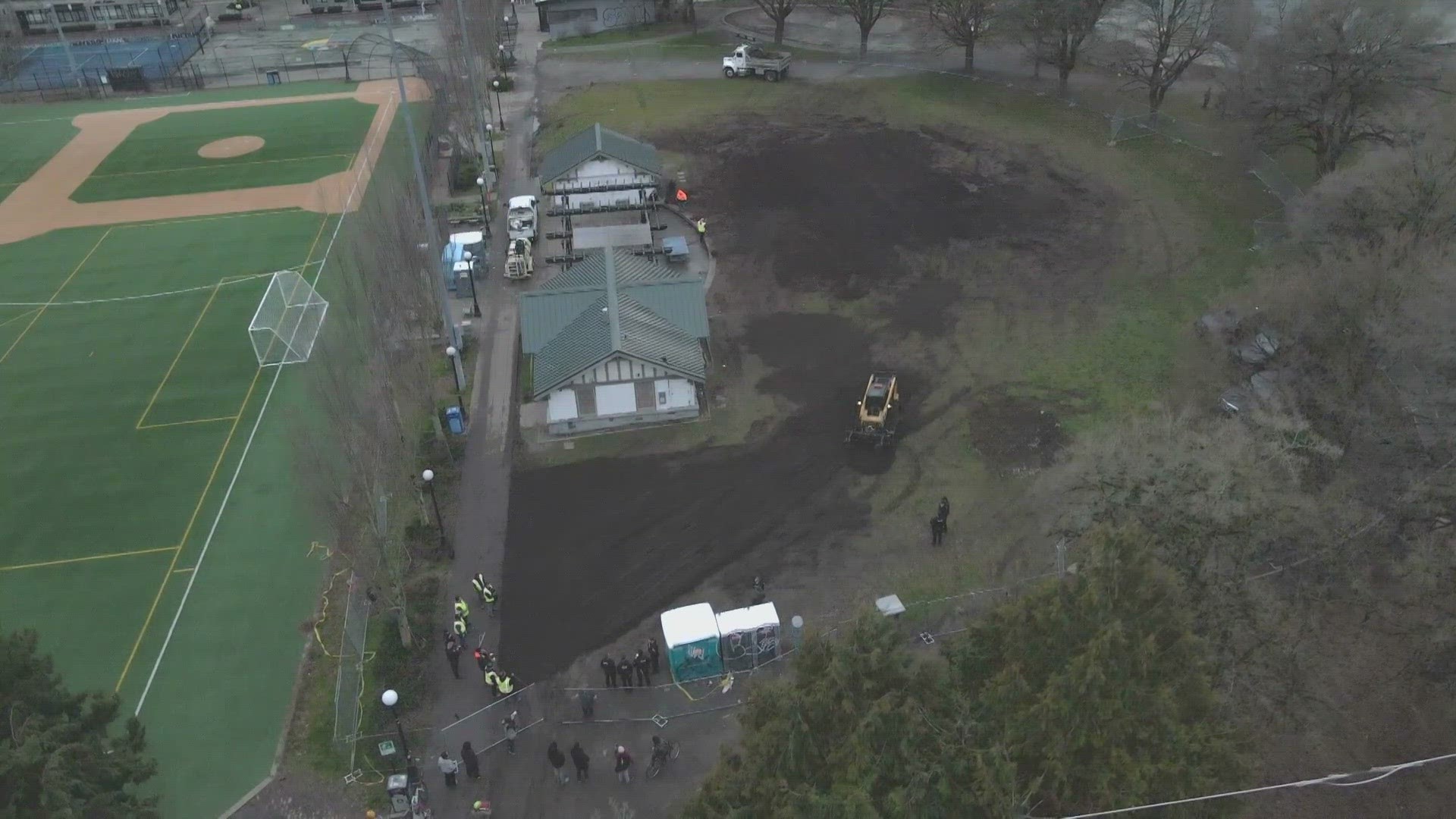SEATTLE — Seattle Parks and Recreation (SPR) removed a community garden Wednesday that became a symbol of hope during the 2020 protests following the murder of George Floyd.
The garden, located in Cal Anderson Park on Seattle’s Capitol Hill, was created by volunteers inside the Capitol Hill Organized Protest (CHOP) and has since inspired several other urban farms across Seattle.
Plans to remove the garden first came to light earlier this year. Black Star Farmers, a nonprofit that formed as a result of the Black Lives Memorial Garden (BLMG), had vowed to save the garden.
“This is our collective space. We must organize and act accordingly,” reads a headline on its website. “Now is the time to show up and get organized.”
The city said it removed the garden "due to public health and public safety issues and the need for maintenance."
Saunatina Sanchez says the garden became a place of community and mutual aid, and questions how the removal aligns with the city's plans for environmental stewardship or community safety.
"We have consistently gotten pushback from the city about helping with that project," Sanchez said. "Instead of working with us, they have consistently decided to be antagonistic and tell us that this wasn't in their control so we needed to leave."
In addition to demolishing the garden, which the city characterized as "temporary" and "makeshift," Seattle's Unified Care Team also removed tent encampments near the garden and along E Olive Street. The city of Seattle said they have "resolved encampments" in Cal Anderson 76 times, including Wednesday, in Cal Anderson Park.
A statement from the city read in part: "In recent months, the temporary garden has created unsafe conditions for all park users, including the vandalism of Cal Anderson public bathrooms, public drug use, unauthorized camping, and a significant rodent problem, along with other issues."
Schulkin, the SPR spokesperson, said the city has tried to negotiate with Black Star Farmers, including offering to help move the plants to another city-owned space behind the Rainier Community Center.
The Black Star Farmers website said moving the garden to another location isn’t acceptable, as it is part of what’s known as an occupation protest.
Seattle has a rich history of occupation protests leading to disenfranchised communities securing permanent spaces. In 1970, 100 protesters occupied the former Fort Lawton, demanding the land be given back to native people. Seven years later, Daybreak Star Indian Cultural Center was created. El Centro de la Raza, a nonprofit hub for the region’s Hispanic community, exists because of an occupation protest of an abandoned school on Seattle’s Beacon Hill in 1972.
The city said the location of the garden in the park's "Sun Bowl" meant the loss of one of the few spaces for hosting gatherings and events.
A written statement from SPR says Mayor Bruce Harrell and city leaders are working with the Black Farmers Collection to create a new commemorative garden elsewhere in the park.

